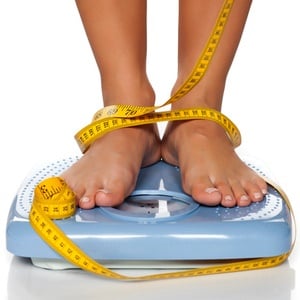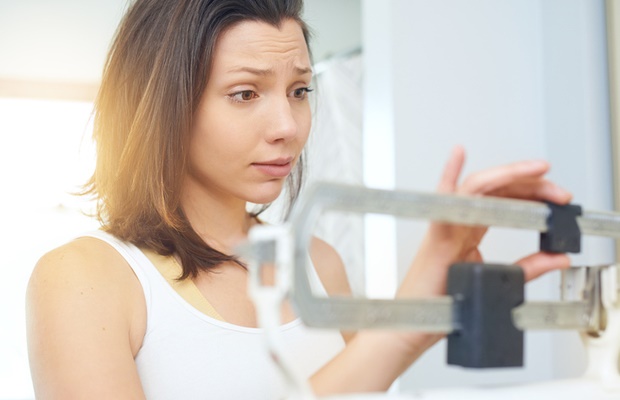
The scale can be your best friend – or your worst enemy – when you're on a diet.
But whether or not you like what you see, a scale isn't the only – or necessarily the best – way to track your progress. Rather than looking for a particular number on a scale, measure your success in more meaningful ways:
1. Check your BMI (but don't obsess over it)
Changes in your body mass index, or BMI (a ratio of your weight and height), is one good indicator of weight loss. Use an online calculator to plug in your stats. As your weight drops, you should also see your BMI go down. Note that a normal BMI range is between 18.5 and 24.9, while 25 to 29.9 indicates overweight, and 30 or greater signals obesity. Remember that BMI has limitations of his own and use this method only as a rough guide.
2. Get the tape measure
Because a large waist circumference puts you at greater risk of diabetes, heart disease and other health problems, you can also chart your progress with a tape measure. Use it to track the centimetres around your chest, hips, thighs, calves and upper arms, as well as your middle.
3. Try on your clothes
How your clothes fit is an easy way to know if you're dropping kilograms. Grab a tight pair of pants from your closet and try them on every two weeks, noting any changes. It can be encouraging to notice how a pair of previously too-tight pants can now be done up with ease.

4. Be realistic
If you're still focused on using the scale, aim to lose a realistic ½ to 1kg a week, to avoid being discouraged. Also keep in mind that things such as muscle weight and water retention can influence the numbers.

5. Pick the right time
Also, keep in mind that Monday isn't the best day for a weigh-in. Because people tend to eat more on the weekends and less during the week, Friday morning is a better time to get on the scale. But remember to stick roughly to the same time every week (preferably in the morning after your first bowel movement) and don't obsess over the scale – only weigh yourself once a week.

Choose your scale wisely
While it's important not to obsess over the number on the scale, the scale can remain a helpful tool if you are on a weight-loss journey. Dietitian Ingrid van Heerden gave her advice on how to make sure the scale is roughly accurate.
"It is a good idea to buy a good scale that gives reliable results (test any scale you buy by weighing yourself about 4 times in succession – if the scale is inaccurate then it will give you four different readings and you will know not to waste your money). However, it is not necessary to spend a lot of money to have your fat percentage analysed, as these gadgets can also give the wrong readings. Stick to a healthy diet and exercise routine, weigh yourself once a week, and track your vital statistics also once a week, and relax – the weight loss will happen."
Image credits: iStock




 Publications
Publications
 Partners
Partners














